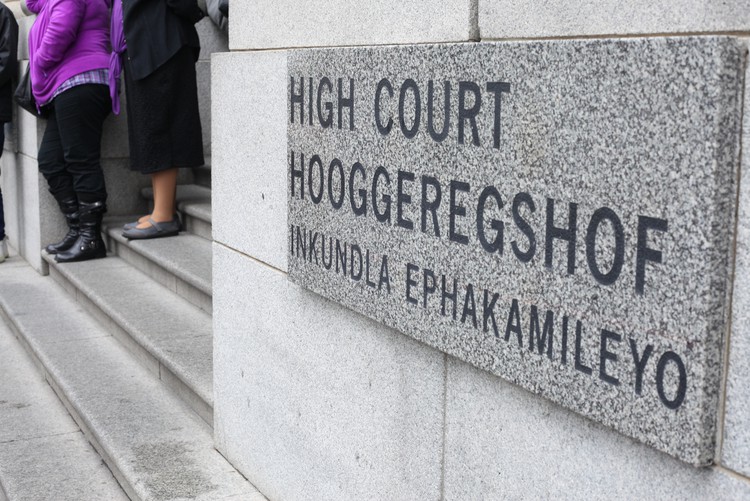
12 May 2021
The Western Cape High Court is hearing an application for a Special Master to be appointed to speed up the long-awaited re-opening of the Cape Town Refugee Reception Office, which has been closed since 2012. Archive photo: Masixole Feni
Acting Judge Alma de Wet has proposed a way to fast-track the re-opening of the Cape Town Refugee Reception Office, which has been closed since 2012.
In a virtual hearing on Wednesday, the Legal Resources Centre (LRC), representing refugee organisations, asked the Western Cape High Court to appoint a Special Master to oversee the re-opening of the office. The LRC also wants orders confirming the failure of the Department of Home Affairs (DHA) to comply with orders made by the same court in 2016 and by the Supreme Court of Appeal in 2017.
Judge de Wet suggested a case management system with both parties meeting once a month with the same judge and the department preparing monthly reports on progress towards opening the centre. “There will be monthly hearings at which the respondents will come and account for what they have done and a clear plan,” she said. She said if the suggestion did not work, the LRC could return to the proposal of a Special Master.
The LRC, which is representing the Scalabrini Centre and the Somali Association of South Africa, also wants the practice of issuing administrative fines to asylum seekers and refugees before their permits can be renewed to be declared unlawful. Sonke Gender Justice has been admitted as a friend of the court and will testify before the court on the impact that the continued closure of the refugee reception office has on asylum seeker women, LGBT people and children.
LRC senior counsel Steven Budlender told the court he had been litigating the case since 2012 when the department unlawfully closed all three offices nationally.
“Port Elizabeth only got opened after two court cases. And now we are here. All we want is an effective remedy and we know that DHA is in breach for three years. This has breached the rights of the most vulnerable people in our society.”
“An asylum seeker permit is essential to enable an asylum seeker to live, work and function in South Africa prior to determination of his or her status. The kind of people… we are talking about are the most vulnerable population. Without that permit they are illegal foreigners and illegal foreigners under the Immigration Act have no right to work, no right to attend school and no right to basically do anything.”
Department of Home Affairs senior counsel Ismail Jamie argued that the appointment of a Special Master would add more bureaucracy and management which is unnecessary. “We want to open the centre as quickly as possible but in order to do that one doesn’t need a Special Master.”
He also told the court: “We need to have practical occupation and commencement of running the centre by April next year.”
Judge de Wet interjected: “It’s a very long period. I think with proper management and hopefully through the court the process can be expedited. I am with the applicant with regard to the long delay and impact on refugees.”
The judge asked the two parties to present her with a settlement which she will consider on Friday.